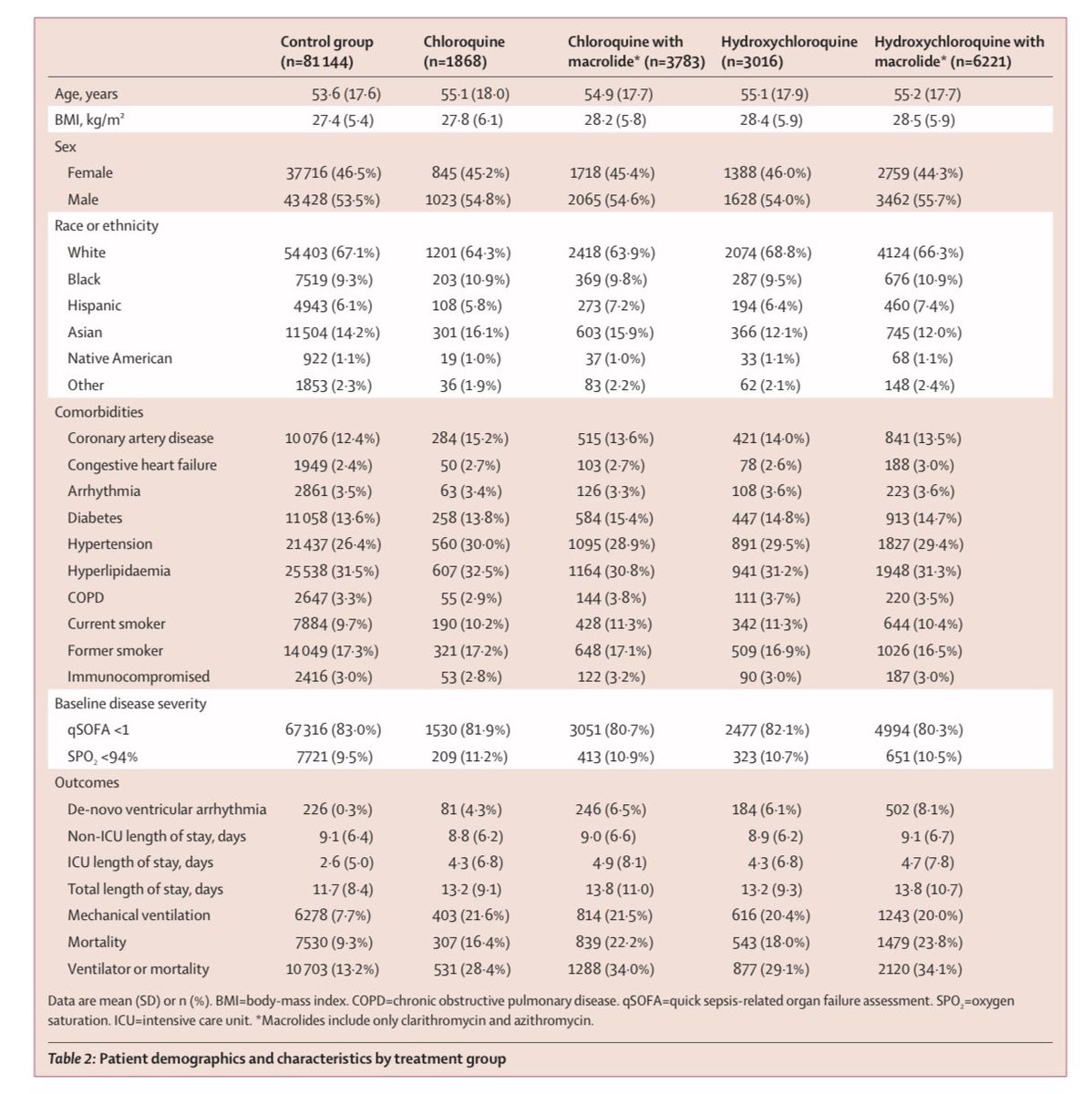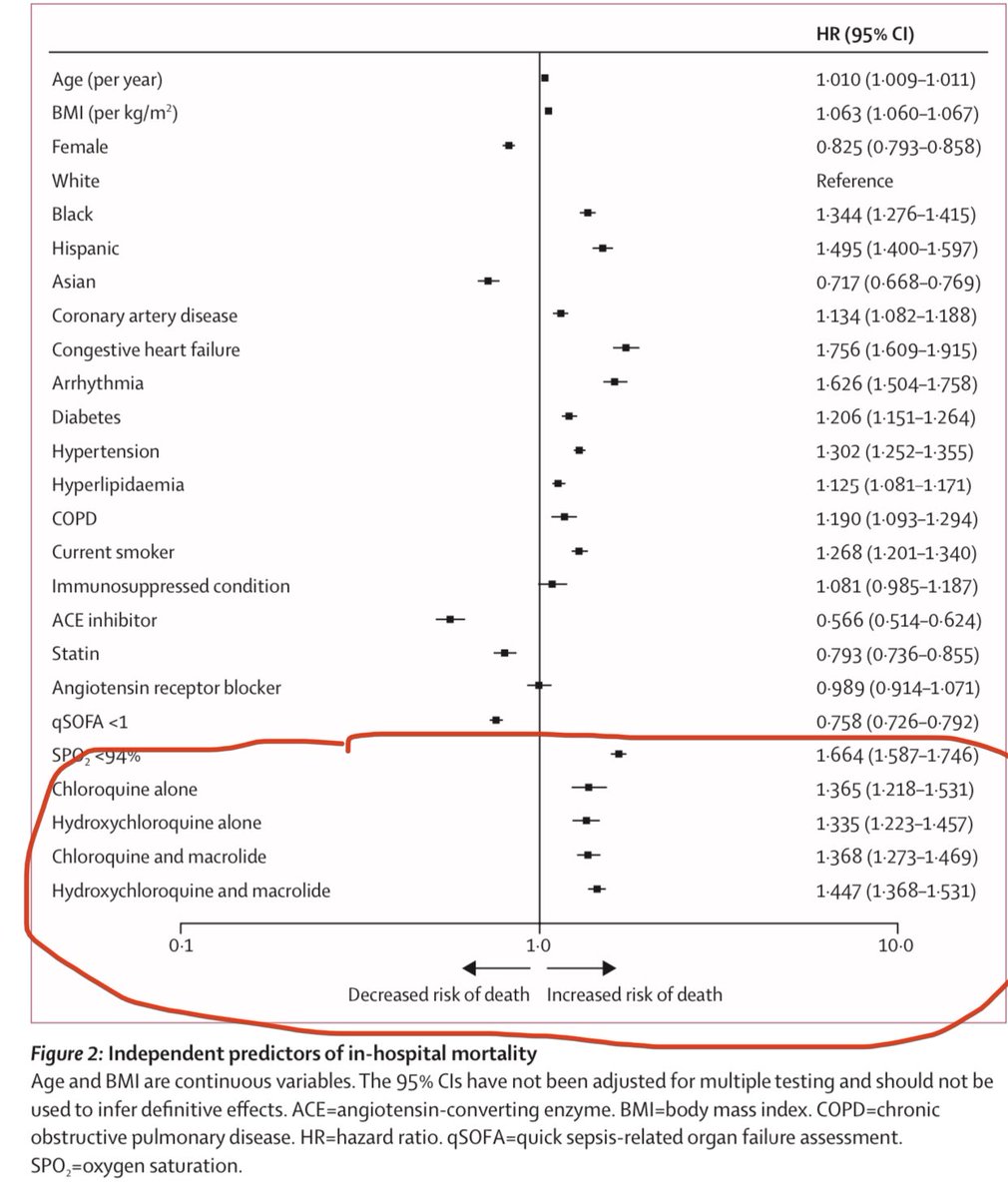📌Increased risk of DEATH by 33-45%
📌Increased risk of ventricular arrhythmia by 2.3x to 5x.
📌Not a trial but a large longitudinal study.
🧵#COVID19 washingtonpost.com/health/2020/05…
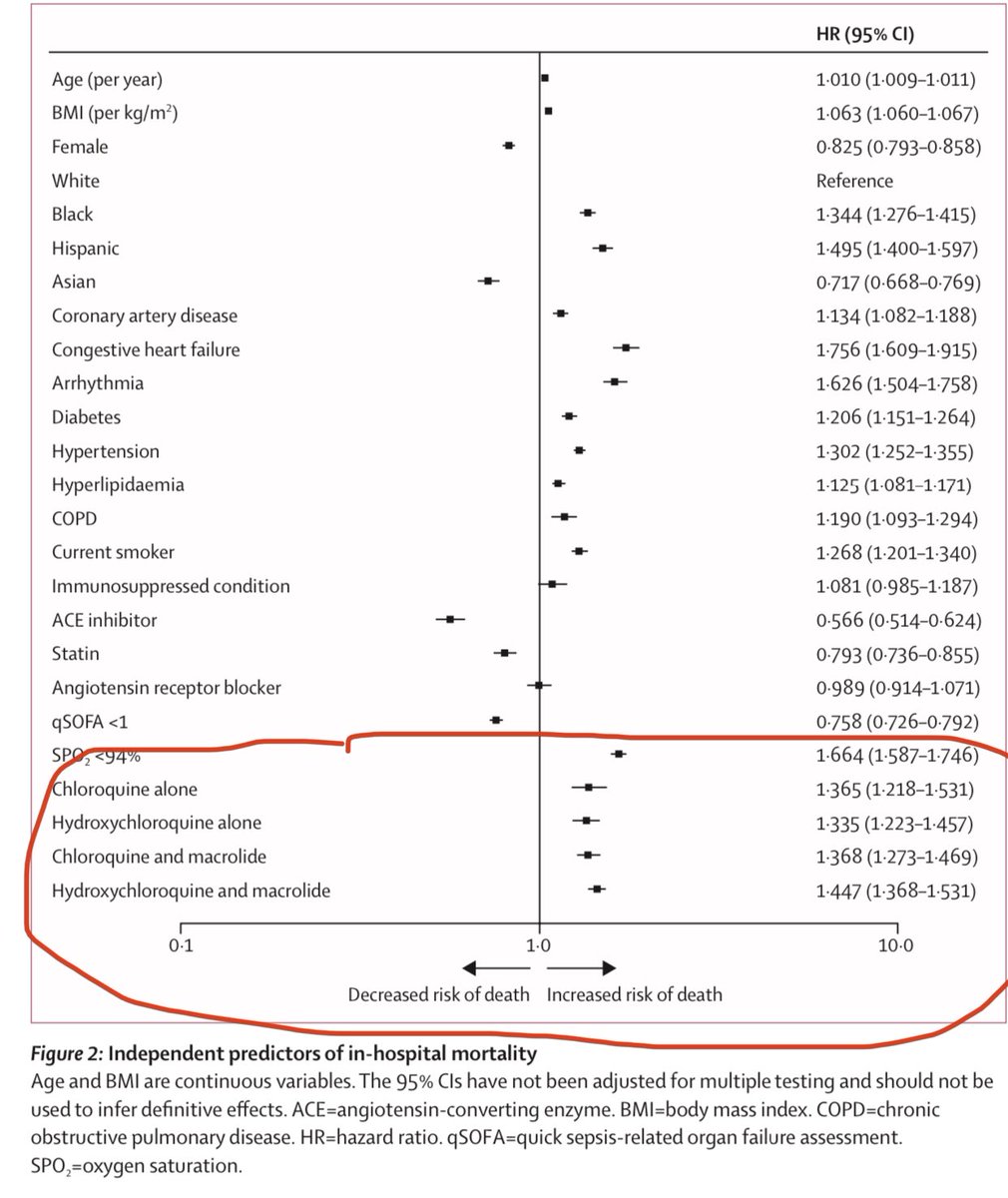
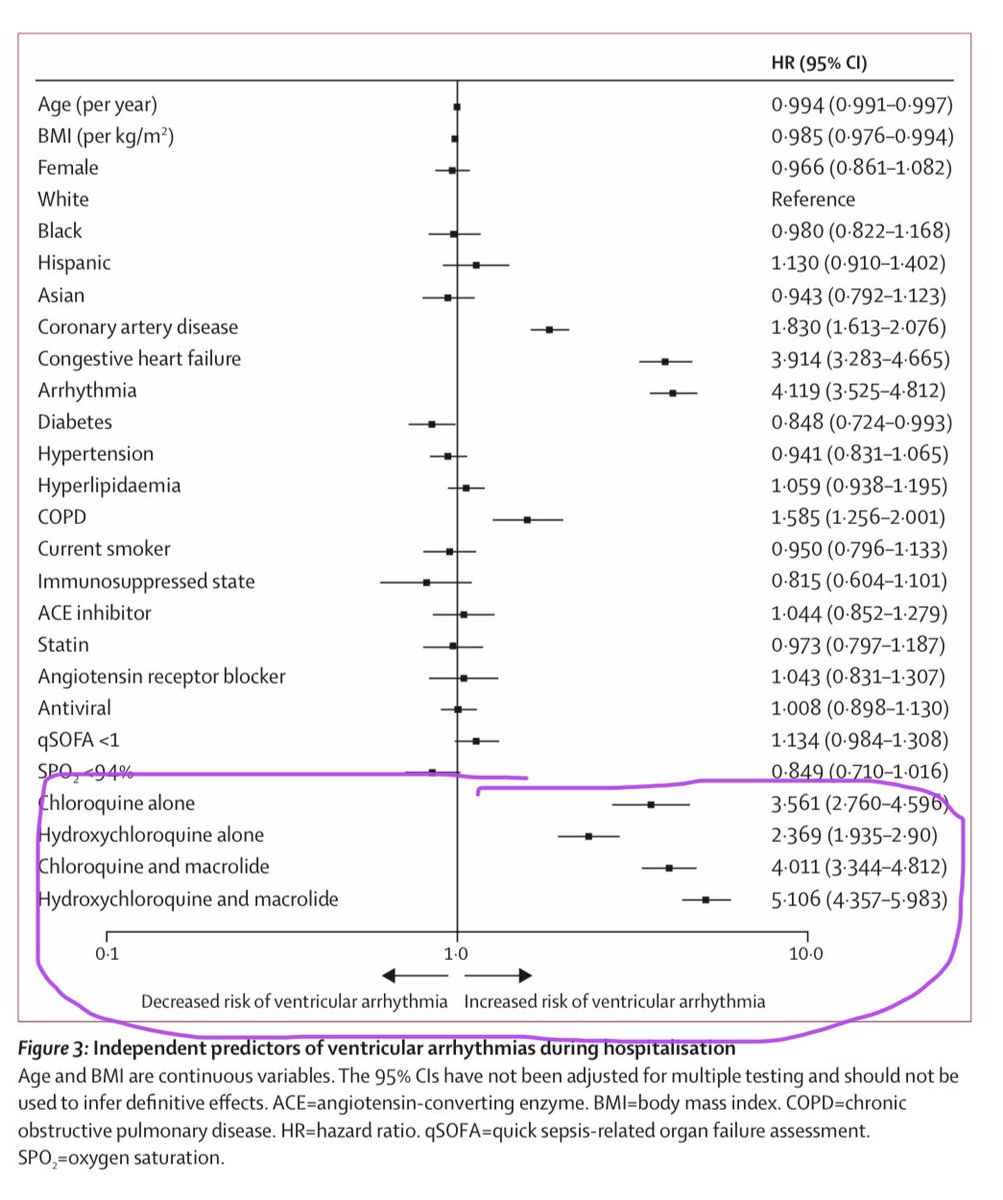
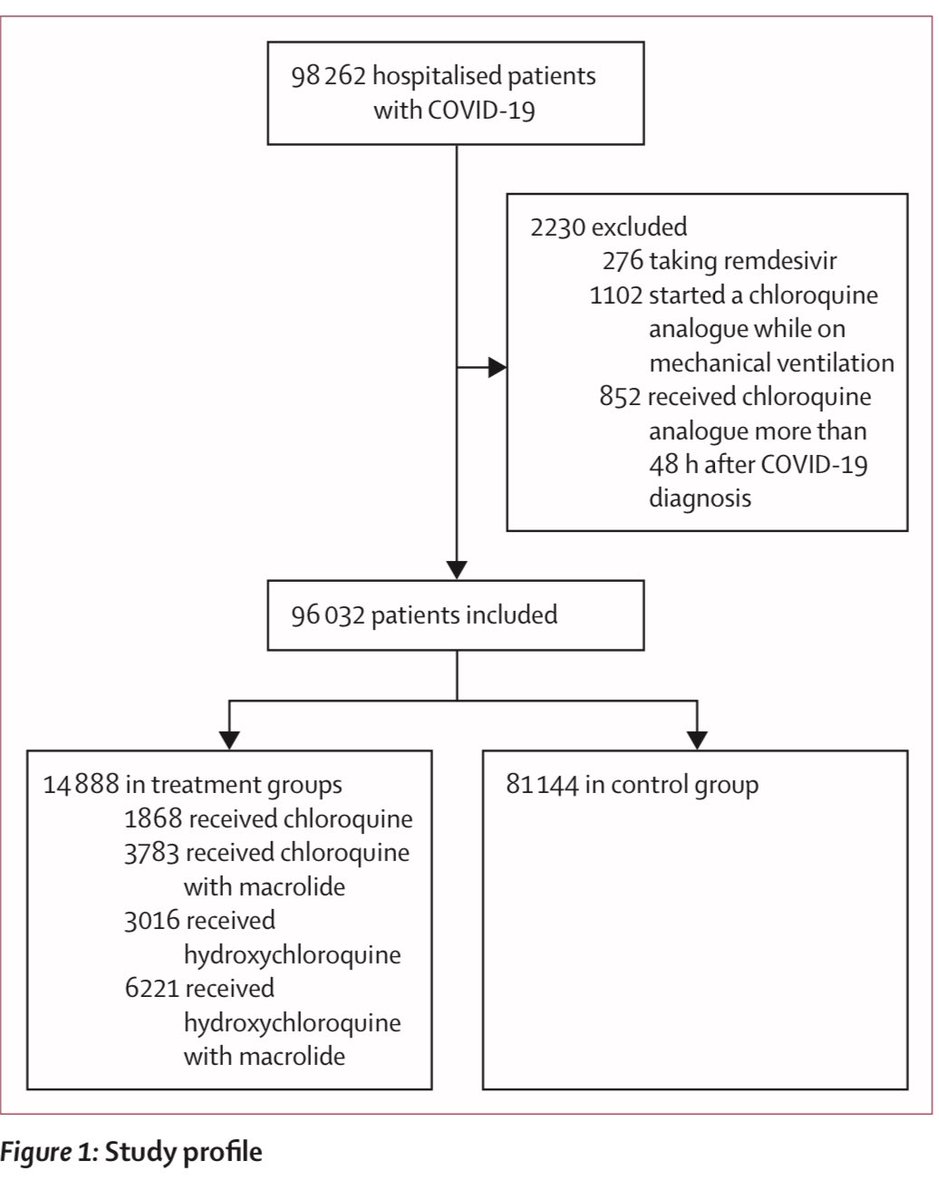
➡️ Do NOT take HCQ or CQ at this time!

